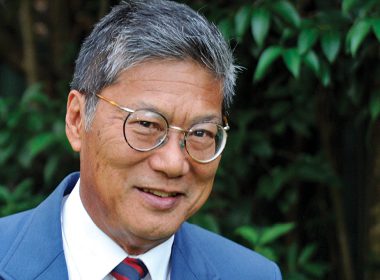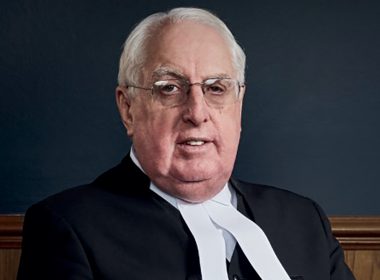Larina Alick is the editorial counsel for Nine Publishing (formerly known as Fairfax Media). She stays across 900 suppression orders made in Australia every year and fights for many of those to be overturned. She tells about the case that sparked her passion for the public’s right to know.
“In June 2014, there was an ongoing case of The Crown against Brady and others in the Victorian Supreme Court, otherwise known as the Securency case. It was an unusual criminal prosecution of people involved in the Reserve Bank, which had a side business engaging in contracts with foreign countries to print their money for them.
To win those deals and make those contracts happen, there were allegations about bribery of various officials. Part of this was not just prosecuting the Australians; it was naming the foreign officials who allegedly had been involved in this bribery.
It was an incredibly complex case and, when it came to crunch time, the Department of Foreign Affairs and Trade [DFAT] made an application to suppress the foreigners’ names. There was a list of about 20 high-ranking officials and their family members; prime ministers, deputy prime ministers and finance ministers of various countries. These were the kinds of allegations that can change governments. But the court, at DFAT’s request, made the suppression order.
It was an incredibly complex case and, when it came to crunch time, the Department of Foreign Affairs and Trade [DFAT] made an application to suppress the foreigners’ names. There was a list of about 20 high-ranking officials and their family members; Prime ministers, deputy prime ministers and finance ministers of various countries. These were the kinds of allegations that can change governments. But the court, at DFAT’s request, made the suppression order.
Once that order became known to the media, it caused an absolute storm. People were quite surprised they could not report these important details. Effectively, we would have a story about Australians bribing foreign officials without naming those officials.
It ended up in the hands of Wikileaks, who promptly posted the order on the internet complete with the names of all the foreign officials that had been suppressed. The media in Malaysia, Vietnam and Indonesia got hold of that and started publishing. I was working for NewsCorp Australia at that time, and in this case we had NewsCorp and Fairfax side by side, our interests completely aligned.
In any story, the key questions are who, what, when, where and why, and the first question is always who. It makes a huge difference to a reader’s understanding of a story if they know who the people involved are.
Our key argument was that the order was futile and ineffective, partly because of the overseas publications, which were available on the internet and therefore available in the Australian jurisdiction.
We also argued the order should not have been made in the first place, given the high public interest. Usually there must be extraordinary circumstances in favour of suppression for an order to be necessary. This was the opposite. This was a case where those names absolutely could and should be reported.
DFAT was worried these people would be defamed by coverage of the case, but the reality is most people who are named in criminal cases do not get the benefit of DFAT intervention and a suppression order.
Thankfully, the judge sided with us and overturned the order. She found the order was futile and ineffective, and a lot of that was based on the overseas reporting. It was absurd the information was all over the world at that time and the only people who could not report it were the reporters who had their feet on the ground here.
The courts recognise that when the media is fighting these suppression orders, they do it on behalf of the Australian public. We are not doing it for our own commercial reasons. The addition of a name or a photo is not a huge commercial driver for us.
What the case did for me professionally was give me that first taste of winning on a suppression matter. There have been hundreds of these orders that we have had overturned because they are futile. Some are made on the wrong grounds, or on no grounds at all.
We got a costs order against DFAT and I have a copy of the cheque, paying our costs, framed in my office. We are pursuing costs more vigorously now because we need to use everything in our arsenal to stop these suppression orders being wrongly applied for, and costs is a good incentive for that. Even if we never enforce the costs order, as long we get them it is sending an important message.”




